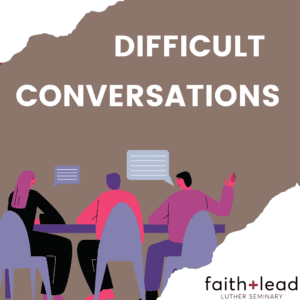What if I told you that somewhere there’s a shadowy cabal of elites pulling all the strings of global politics from behind a veil of secrecy? Some of these nefarious evildoers come from even the highest ranks of our most beloved social institutions. Behind closed doors, they worship a dark lord with rituals of child abuse and cannibalism, and it is said that they will stop at nothing until the nation lies and ruins and they have enslaved us all.
Conspiracy theories are not new
While you may have thought I was echoing QAnon, I was actually talking about the infamous blood libel, the antisemitic canard from the Middle Ages that Jews secretly perform rituals involving child sacrifice, and the long-debunked “Protocols of the Elders of Zion,” a fabricated document that alleged a vast Jewish conspiracy to control global finances and politics. The echoes of that story can be heard throughout the QAnon narrative.
Just as easily, the story could have also been a retelling of the “Thyestian Banquet” rumor that circulated about Christians in Rome in the 2nd and 3rd centuries. It was said that because the Christians called one another “brother” and “sister” and they spoke of “eating the flesh and drinking the blood of the Son,” church rituals must have involved acts of incest, child sacrifice, and cannibalism. Even the ancient theologian Tertullian frustratingly plead for the Romans to launch an official investigation so that the rumors could be put to rest, “A judge should wring out of each one of us how many murdered babies we had tasted, how many incestuous orgies we had joined in the dark…My, how great would be the glory of the judge who uncovered a Christian who had eaten one hundred babies!”
We have to remember that conspiracies like QAnon, blood libel, and Thyestian Banquets are designed to be sensational and addictive. They are engineered with fantastically offensive details in order to rouse the fury of the populace and create the conditions necessary for ordinary folks to consider taking up arms against their neighbors. They tell the darkest possible story in order to engender the maximum amount of suspicion and hatred.
These kinds of conspiratorial narratives seem to rise during times of deep cultural resentment in order to present a marginalized group in the worst possible light. At their worst, such stories can be used as precursors to persecution. And, in the wake of the violence of January 6, 2021 and amidst the divisions of our society, it seems that they are doing their job.
Responding as the Church
Those of us who work in the Church know that the stories don’t stop at the headlines. Over the past two years, I’ve heard some of the most heart-wrenching stories of my pastoral career: parents estranged from their children, marriages falling apart, congregations splitting up, and pastors being run out of town—all because good people are listening to, and obsessing over, these dark, obsessive tales. Child-eating democrats in Congress, a plan-demic being used to institute global communism, an election stolen, and a DNA changing vaccine—it all adds up to what I call a “mind-virus,” a pathogenic story that spreads throughout a population leaving nothing but anger, division, and the desire for violence in its wake.
So what’s the cure? Do we minimize the problem, pass it off as nothing more than a fringe movement? Or do we confront it with the full force of our contempt and derision, seeking to shame the infected in the hopes that they’ll finally put a stop to their obsessions and come back to reality? Or, when all else fails, do we simply cut them out of our lives?
Neither approach has seemed to work, either in public or from the pulpit. As ridiculous as it all sounds, ridicule is no treatment, and this virus is immune to even the most well-reasoned arguments. Debate only drives it deeper. Ridicule only exacerbates the problem.
No, what this infection needs is sunlight. The deep wounds from which it grows need to be aired out and tended.
Motivational interviewing
There’s an organizational psychologist at the Wharton School named Adam Grant who promotes a process called “motivational interviewing.” The idea is not to confront the lies, but to ask questions. When someone’s infected with a mind-virus like QAnon, no amount of rational argument will break the spell. The key is to connect on a personal level—to ask why the person believes what they do, what led them to these ideas, and why they find them so convincing.
Unfortunately, some Christians are always trying to convert folks to our way of thinking. In this case, that only does more harm than good. What we need to do is create a safe space where folks can feel free to interrogate their beliefs under an umbrella of trust, transparency, and vulnerability. Disputes and arguments only drive us deeper into our trenches. Sharing stories can bring sunlight to our wounds. The truth is, conspiracies don’t just pop out of nowhere inside someone’s mind. Everyone has a story about how they came to believe these terrible stories, and it’s only in telling it that they can hear how ridiculous it sounds.
This approach takes time, patience, and humility. I realize that with what feels like the weight of the world on their shoulders, some preachers just don’t have those resources right now. That’s okay. Ultimately, it’s not our job to heal the world. Only God can do that. Our job is simply to tell a better story.
The Gospel is a better story
At its heart, QAnon is just a really bad story. It assumes the world is an inherently dark and violent place, where we have to retreat to our tribes and cling to strongmen and violence in order to maintain even a modicum of peace and order. The Church’s story, however, is about a world that belongs to the meek, where sins can be forgiven seven times seventy times, and all the lost sheep are one day found.
Sometimes I fear that story has gotten lost in the midst of all our political posturing and partisan identities. Perhaps familiarity means that the old Christian gospel doesn’t have the same power to capture imaginations the way it used to. We can’t compete with the flood of social media posts, YouTube videos, and talking-head-politicos that now dictate reality to the masses. It seems like the world only exists on a spectrum between deep red and bright blue, anything else is just irrelevant.
But maybe that’s okay too. Maybe we try too hard to be relevant sometimes, especially where politics and conspiracy are concerned. Perhaps, instead of trying so hard to win, what we all need at a time like this is to anchor ourselves in the story of our God, the One who set aside power, embraced us while we were still enemies, and submitted himself to death. Instead of trying to win, perhaps we need to invite those entrusted to our care to inhabit a world that is still enchanted with grace and overcome with love. Instead of trying so hard to convince and convert, we need to focus once again on proclaiming our story and letting the chips fall where they may.
Ultimately, that approach may not work the way we would like, but as a pastor (preacher, teacher and counselor), it’s all I have.
Practical steps
Here are some practical steps I’m taking in my ministry to tell a better story.
- Rather than “staying out of politics,” I lean into the idea that Christianity is “supra-political,” that is, a higher form of political discourse that transcends the partisan bickering that we find on the news. I take every opportunity to remind my congregation that we preach the “gospel of the Kingdom,” a Kingdom where humility and agape love always win the day. Those are virtues that short-circuit the power of conspiracy theories.
- I try to design small groups that invite folks of different political and cultural perspectives to engage and form relationships with one another. In our technological age, it’s easy to confine ourselves to echo chambers that simply magnify the power of the stories we already tell ourselves. Church should be a safe community where everyone gets the chance to tell their story and hear the stories of others.
- I remind myself that those who fall into these harmful narratives are not evil themselves, nor are they hopeless. They are simply people who are hurting just like me, and they have turned to something dark to make them feel safe. I try to push down my desire to win and summon my compassion and empathy.
- Finally, I try to stay connected to the true story, through prayer, lectio divina, and exploring nature with an attitude of mindfulness. I need to constantly remind myself that the world is still teeming with God’s grace, because there are so many voices trying to tell me otherwise.
It can be tempting, especially for clergy and other church leaders, to think that it’s up to us–to save people from themselves, to be a light in the darkness, to create a better world. That may make for a great Marvel movie, but in the Christian story, that’s foolishness. Ultimately, this is God’s story, with Christ as its hero. Our job is only to play our little part in our little chapter while we look forward to the really great ending that’s coming for us all.




